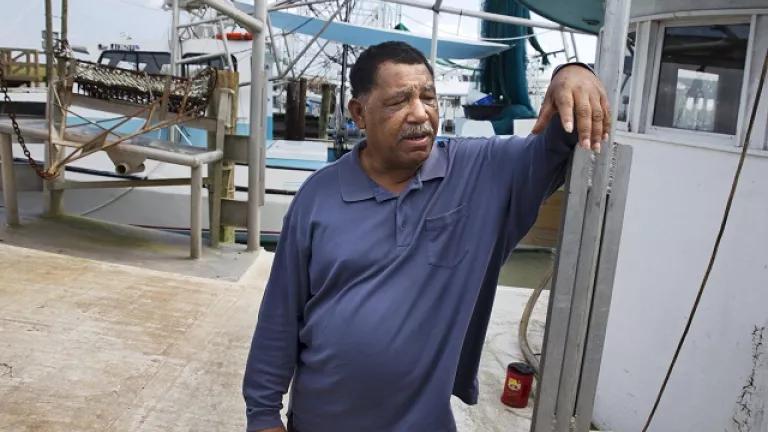Disaster in the Gulf
Years after BP's disastrous oil spill, not much has changed—including the impulse to drill.

When BP's Deepwater Horizon oil rig exploded on April 20, 2010, and sank to the bottom of the Gulf of Mexico, it killed 11 workers and spewed millions of gallons of crude across a huge swath of ocean and coastline. It took 87 days before the flow of oil could be stopped, but the devastation to wildlife and livelihoods continues to this day.
With the support of its allies in Washington D.C., the oil industry has avoided reforms that would make drilling safer. Despite a long chain of failures that led to the blowout, Congress has yet to pass a single law to help prevent future offshore-drilling disasters—even as industry efforts expand in the Gulf and the administration considers opening Atlantic and Arctic waters.
The nation's costly and dangerous dependence on fossil fuel continues to endanger the lives of U.S. workers, the health of our waters, the lifeblood of coastal economies, and the survival of wildlife. There is a better way—putting necessary safeguards in place while also converting to clean energy sources that can't spill or run dry. Former offshore-drilling regulator Liz Birnbaum is right: "We have long since reached the point where we should stop drilling for new supplies of oil."
NRDC looks back on the people and places that endured the worst of the disaster, and whose lives continue to be harmed by its impact—and the ongoing blight of the fossil-fuel industry in their waters and on their shores.
Listen to Byron Encalade (above), a Louisiana oysterman, tell his story:
This NRDC.org story is available for online republication by news media outlets or nonprofits under these conditions: The writer(s) must be credited with a byline; you must note prominently that the story was originally published by NRDC.org and link to the original; the story cannot be edited (beyond simple things such as grammar); you can’t resell the story in any form or grant republishing rights to other outlets; you can’t republish our material wholesale or automatically—you need to select stories individually; you can’t republish the photos or graphics on our site without specific permission; you should drop us a note to let us know when you’ve used one of our stories.


As Trump Moves to Expand Offshore Drilling, He Proposes Shrinking Safety Protections. What Could Go Wrong?
Down with TPP
The Smart Seafood and Sustainable Fish Buying Guide